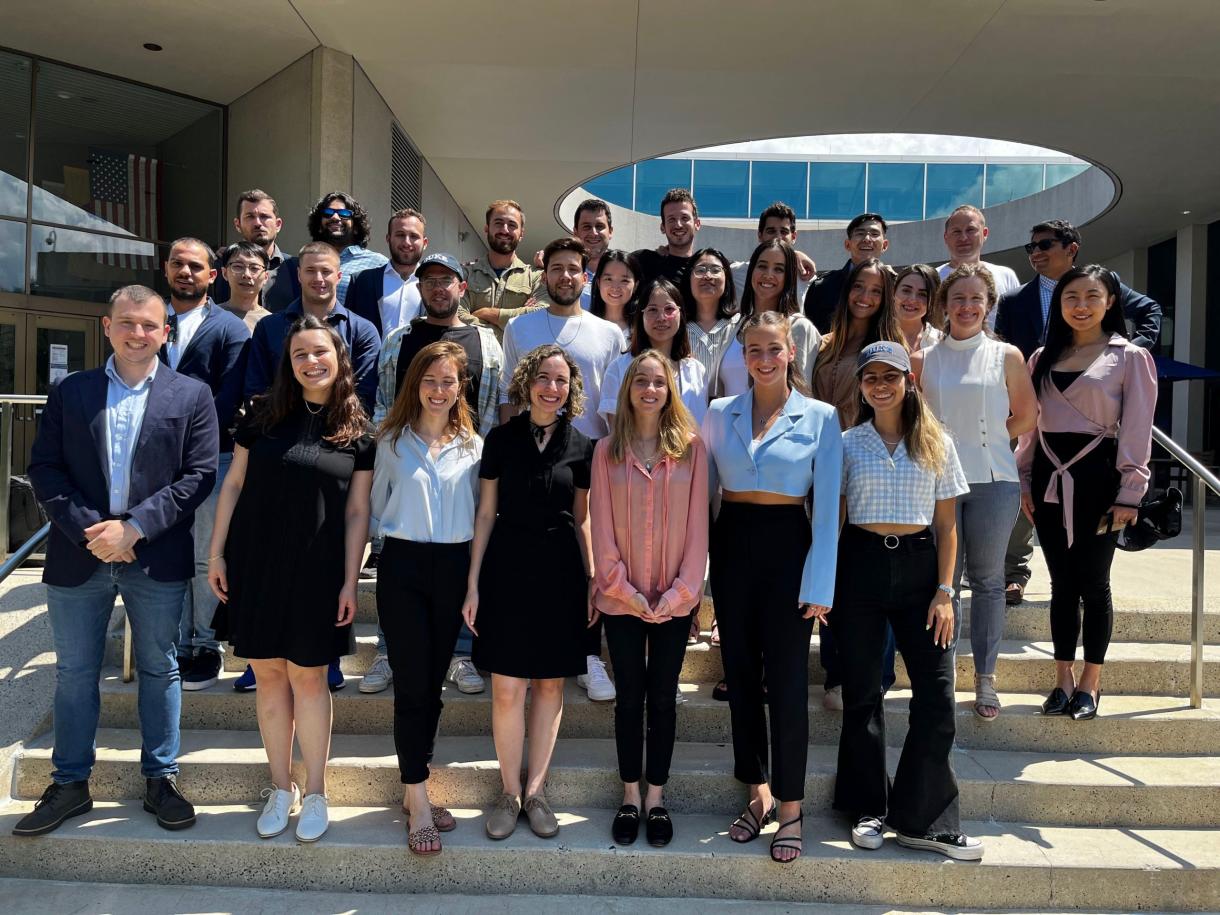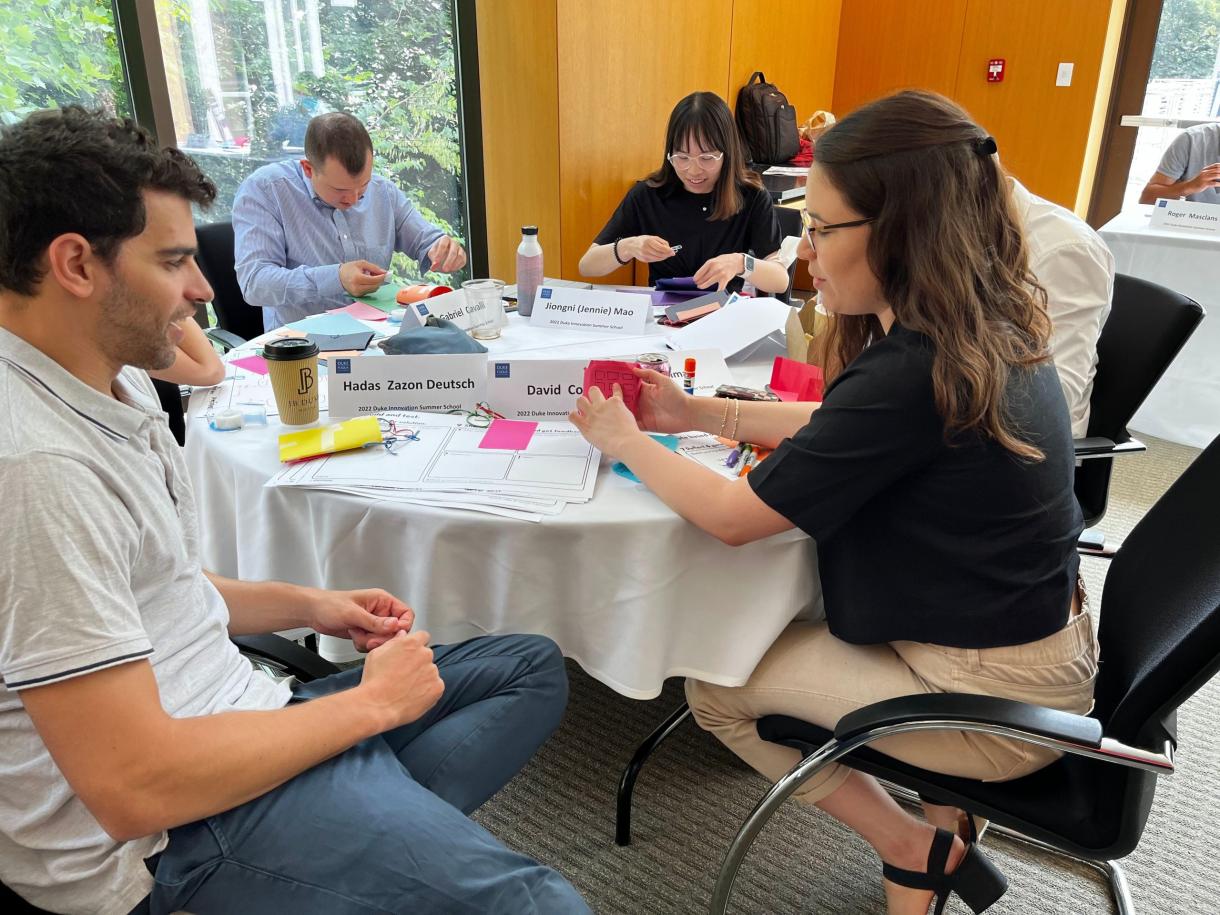

Beach trips are great for some people, but the 30 participants in the inaugural Summer School on the Economics and Management of Innovation preferred to spend their vacation visiting Duke—traveling from the U.S., Canada, Germany, Switzerland, Israel, and China—to gain a big-picture understanding of innovation, entrepreneurship, and the research and development ecosystem in America.
The intensive four-day program, hosted by faculty from the Strategy area of Duke’s Fuqua School of Business, explored the determinants of innovation and technical change, with a focus on firm strategy, market structure, and government policy. Approximately half of participants were early-stage PhD students, with the other half pursuing master’s degrees and a few advanced bachelor’s degree students.
Professor of Strategy Sharon Belenzon explained, “Our aim was to expose young and talented students from leading universities to the research work of the Fuqua strategy faculty. Our hope is that this exposure will lead to long-lasting ties with these students and the universities they come from, which may lead to enrollment in our PhD program and other Fuqua programs.”
Sharique Hasan, Associate Professor of Strategy, added, “This allows us to share our knowledge and excitement about innovation research with a broader community and also learn from the experiences of these incredibly curious and bright students.”
Fuqua faculty shared their research throughout the program, with Professor Ashish Arora discussing the rise of corporate science, markets for technology, and division of innovative labor; Professor Sharon Belenzon discussing the evolution of the American innovation ecosystem; Professor Wes Cohen discussing fundamental drivers of innovation as well as intellectual property and secrecy; Professor Jon Fjeld joining Professor Cohen to discuss entrepreneurial strategy; Professor David Ridley discussing market failures and policy levers; Professor Dan Gross discussing crisis innovation; Professor Sharique Hasan discussing design thinking, experimentation, and learning; and Professor Ines Black discussing how technology is changing the labor market.

“A lot of the work coming out of Fuqua is policy-relevant, and this is something we worked to expose participants to,” said Fuqua PhD student Larisa Cioaca. “For example, the priority review voucher program that came out of [Ridley’s research] became a law within a year and has since helped save human lives—our faculty members do that level of work. They ask the big, hard questions whose answers can inform business leaders and policy makers alike.”
Chang Liu, a PhD student at Bocconi University in Milan, said she was impressed with the research coming out of Fuqua, adding, “[This program helped us] learn about what has actually happened in firms and how policies are changing the world.”
Participants also got a glimpse into the Fuqua MBA student experience via lively discussions, case studies, and skill-building activities such as design thinking sessions and hands-on data exercises. A tour of the Duke Innovation Co-Lab highlighted the extensive resources available to innovators across campus, and the program’s guest speakers included Orit Farkash, Israel’s Minister of Innovation, Science, and Technology; and Tim Londergan, CEO and Founder at Tangibly.
Hadas Zazon Deutsch, who is pursuing a master’s in financial economics at The Hebrew University of Jerusalem, said, “The program sharpened my desire to research and developed my curiosity for the field of innovation. Moreover, it helped me develop a curiosity about how all sectors should collaborate to advance this field.”
Cioaca summarized what she perceives as the unique position and impact of the Strategy group, saying, “We’re part of a big business school and a huge university with extensive resources, but we’re also focused—focused on this intersection between innovation, technology, and entrepreneurship. We bring all these pieces together into a nexus of cutting-edge research, important managerial impact, and vital policy relevance.”